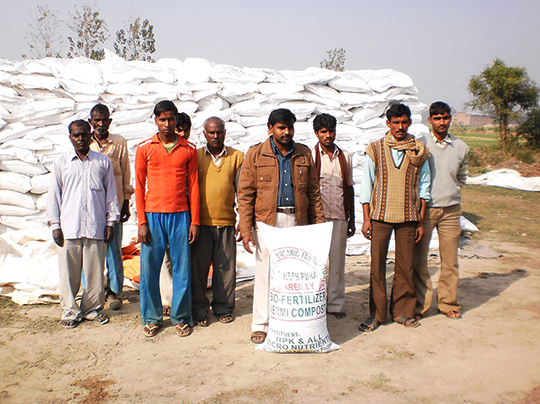Introduction

The smallholder farming landscape is rapidly changing owing to current trends that create both challenges and opportunities for rural communities in their efforts to commercialise.
In this fast-changing environment, farmers and their rural advisory service (RAS) providers must learn new skills and find new ways of working together to develop inclusive business models that help link diverse farmers and entrepreneurs to growth markets. One solution to help with rural commercialisation is to support the growing numbers of agripreneurs, who could play a catalytic role in generating new income streams and jobs. Politicians and practitioners as well as scientists have recognised that farmers, processors, and local service providers increasingly require agripreneurship support, in addition to sound management and technical skills, to be sustainable in the future. (1)
Philosophy and principles
As the focus of RAS (public, private, NGO, and producer organisation) has moved away from technology transfer and towards a more systems-focused approach, several marketoriented strategies have emerged. Along with collective marketing and value chain methods, greater emphasis has been placed on fostering agripreneurship.
The agripreneurship model is of particular interest to younger and more progressive farmers who want to accelerate their business results through specialised commercial support that works to upgrade their business opportunities. This type of support is often not available from traditional extension service providers.
The changing role of rural advisory services
Working with agripreneurs requires a fundamental shift in the relationship between those providing and those receiving RAS. To be successful, that will mean shifting from a provider–client model to a partnership approach.
Given that agripreneurs have particular needs that depend on the maturity and scale of their business, RAS need to work in partnership with agripreneurs to facilitate links to relevant actors and specialised training agencies in accordance with evolving business needs. RAS effectively play an incubation role for new enterprise ideas, finding the right local expertise to help accelerate business growth, and developing networks that can provide longer-term mentoring to agripreneurs to help sustain their emerging business ventures. This transition from trainer to facilitator means that RAS need to reskill and reconfigure their roles in order to help agripreneurs.
Box 1: What is Agripreneurship?
Agripreneurship describes the adaptive and dynamic process of business development within the agricultural sector that brings innovation and value addition, accelerates value creation, and provides for sustainable systems that support equitable social impact. Agripreneurship can help rural people be more effective players in value chains, not only raising their livelihood options, but also providing new job opportunities for members of rural communities.




